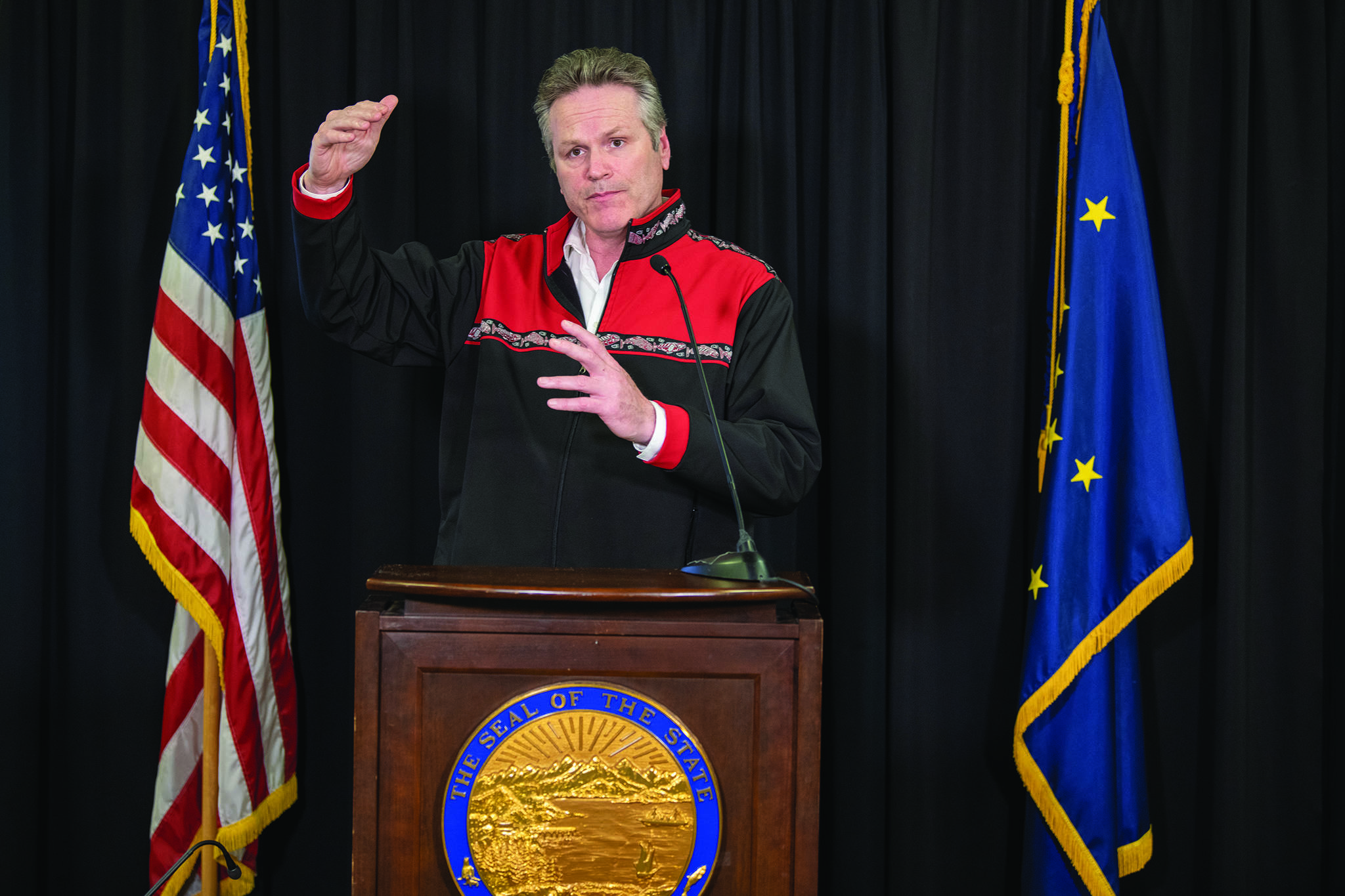Gov. Mike Dunleavy announced Tuesday his plan for spending the $1.25 billion sent to Alaska from the federal coronavirus relief package.
The money would be distributed to communities across the state, to nonprofits, businesses and to the state’s health care sector.
Under Dunleavy’s plan, state boroughs, cities and municipalities would receive $562.5 million of the state’s relief funds. Of that total, the Kenai Peninsula Borough would receive $37,366,255 in community assistance and COVID-19 relief. In addition to funds provided to the borough, peninsula communities would receive money for relief. In Homer, the state would provide $7,886,013. In Kenai, the community would receive $7,684,022. In Soldotna, $7,365,924 would be distributed. Seward would receive $5,324,326. In Seldovia, the community would receive $254,853 in relief funds.
Dunleavy says his plans for the $1.25 billion in federal funds include $300 million for small businesses that can be accessed through state loan services. The Alaska Housing Finance Corporation, the Alaska Industrial Development and Export Authority and the Investments Section of the Department of Commerce, Community and Economic Development would use the funds to temporarily “bolster their existing loan programs to provide support to struggling small businesses,” a fact sheet from the governor’s office said.
About $50 million would be set aside for nonprofit organizations providing essential services to communities, like food banks and shelters.
More than $337.5 million would be left for COVID-19 response efforts. He said the money would be available until December.
“We don’t know what this virus is going to do,” Dunleavy said in a teleconference with the press Wednesday afternoon. “We don’t know how long this is going to take.”
The bill also includes $48 million in emergency grants for Alaska schools impacted by COVID-19, $5 million for schools participating in the National School Lunch Program and other similar programs providing meals and $5 million in grants for higher education institutions.
When Dunleavy signed the state budget with line-item vetoes April 7, he said some federal funds would make up for a number of the vetoes he made. In a statement emailed on Wednesday, Dunleavy said there is a “lack of clarity as to whether the use of CARES act funds can be used to backfill lost revenue.”
“With rapidly shrinking state and municipal revenue, concurrent discussions were occurring between the federal government and states regarding funding assistance to offset expenses made by state and local government to deal with the pandemic, including revenue shortfalls,” Dunleavy’s Wednesday statement said. “Early discussions indicated CARES funding would be available for this purpose.”
Dunleavy said in his statement that the state will operate under the guidelines included in the federal relief package “to mitigate the impact of the pandemic” on local expenses and support businesses and nonprofits.

